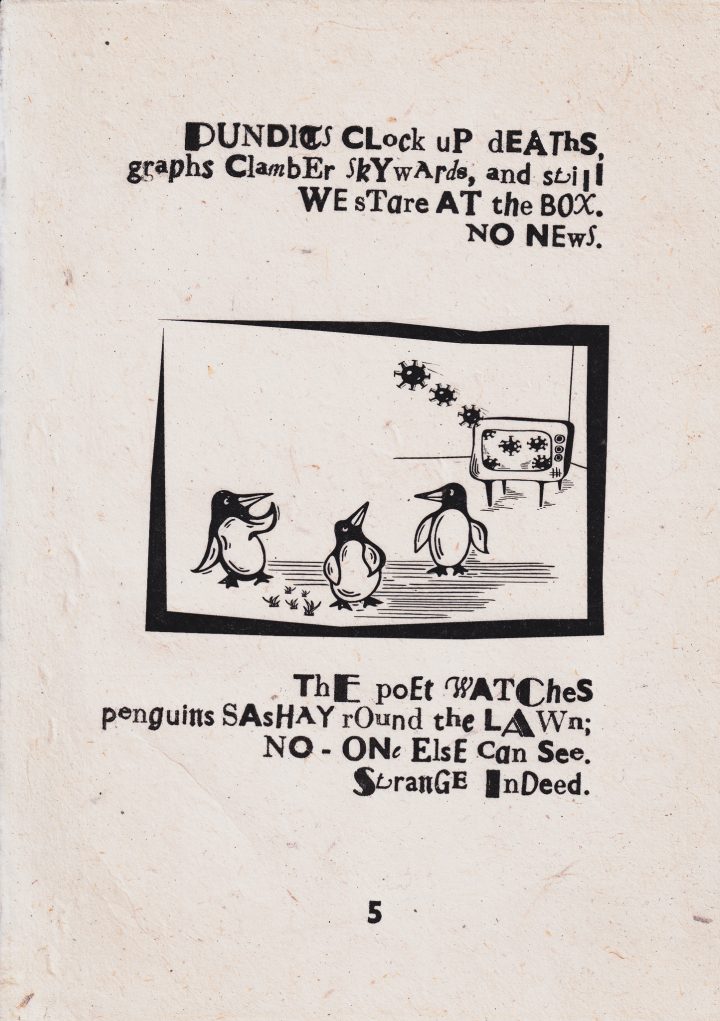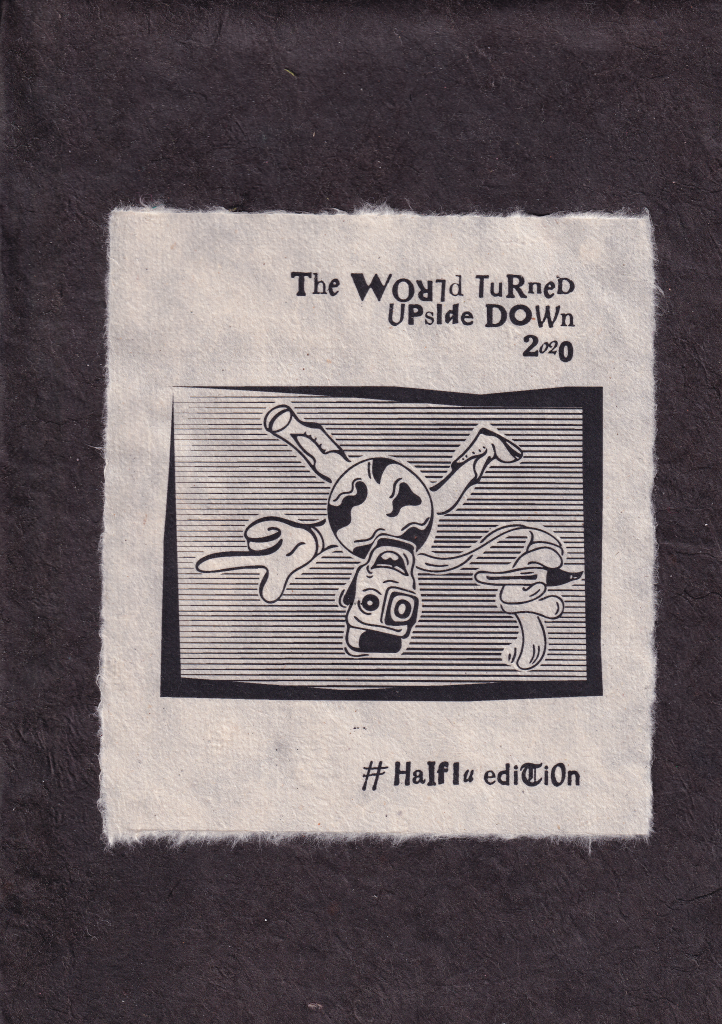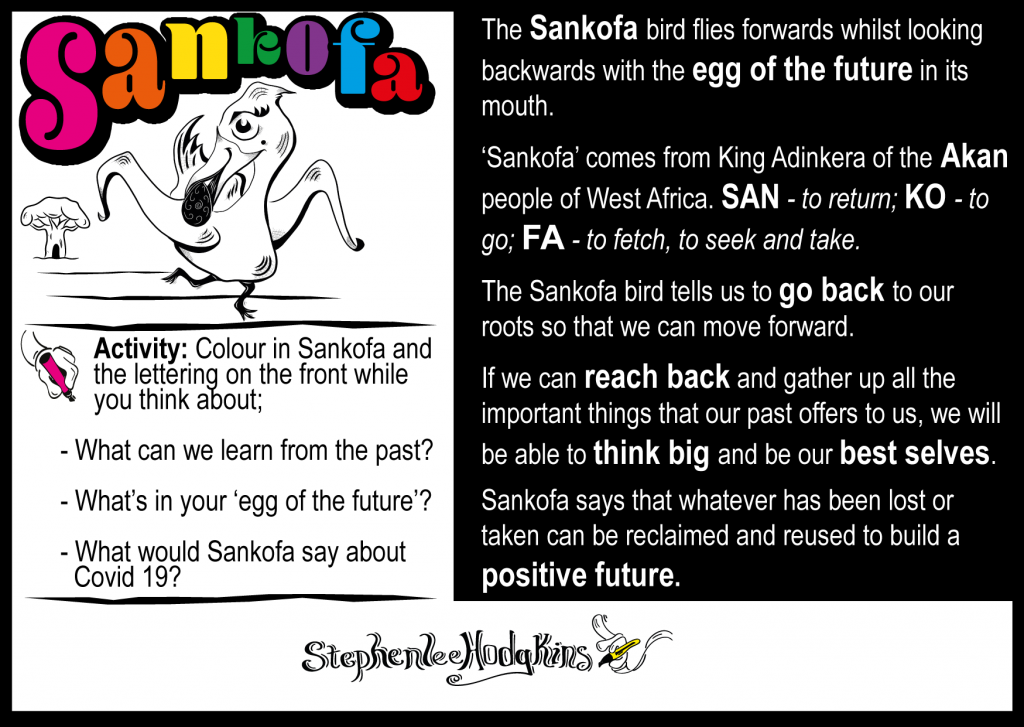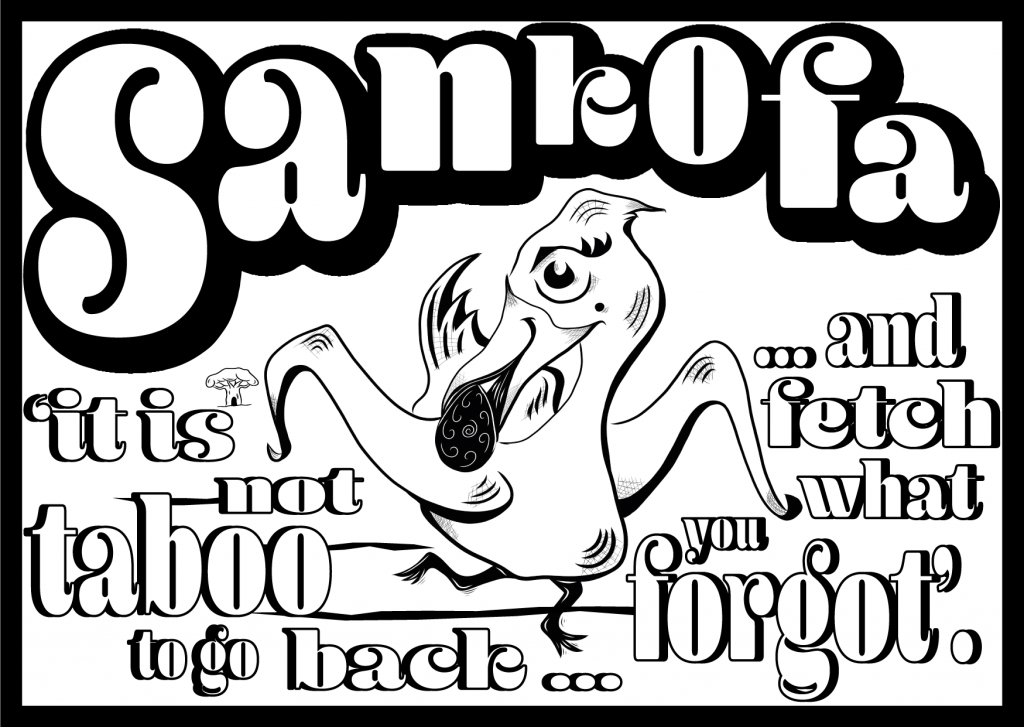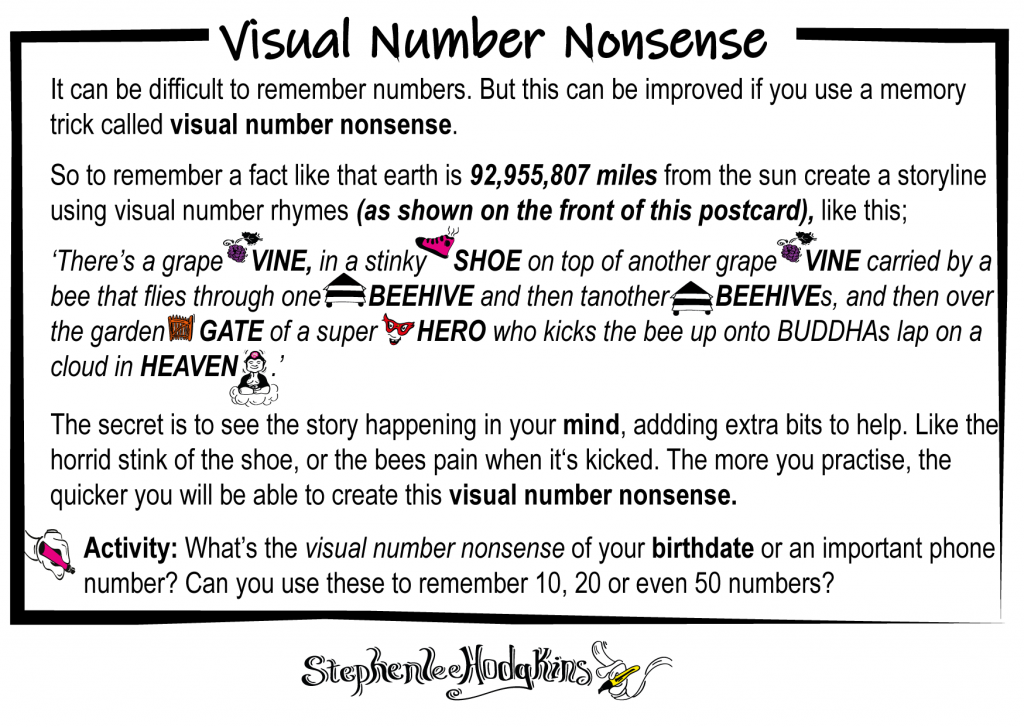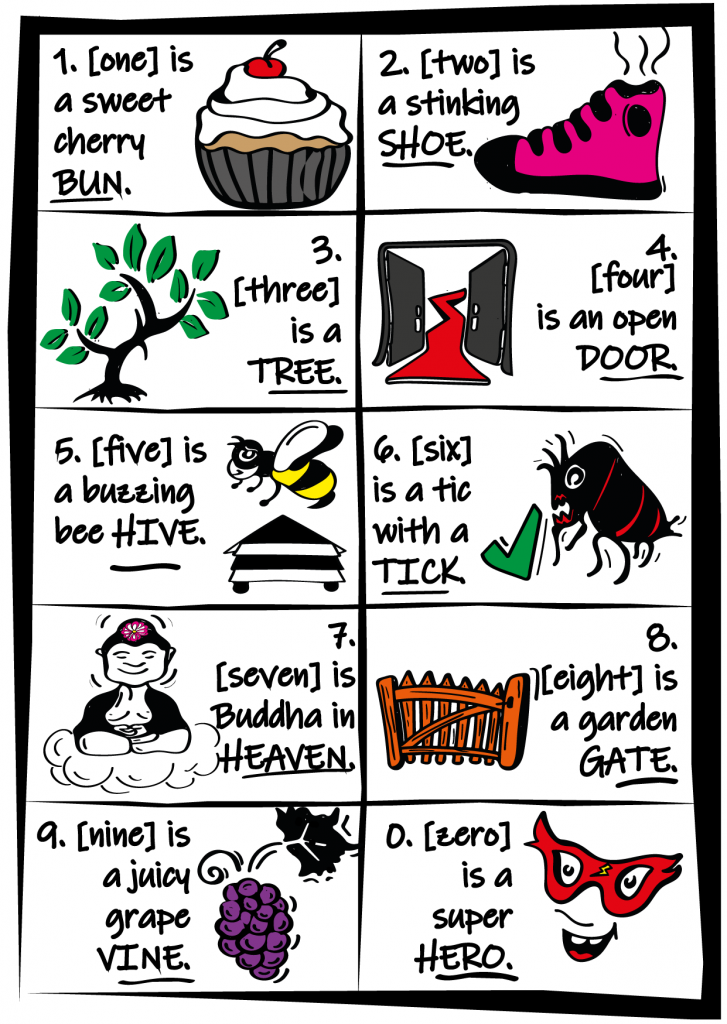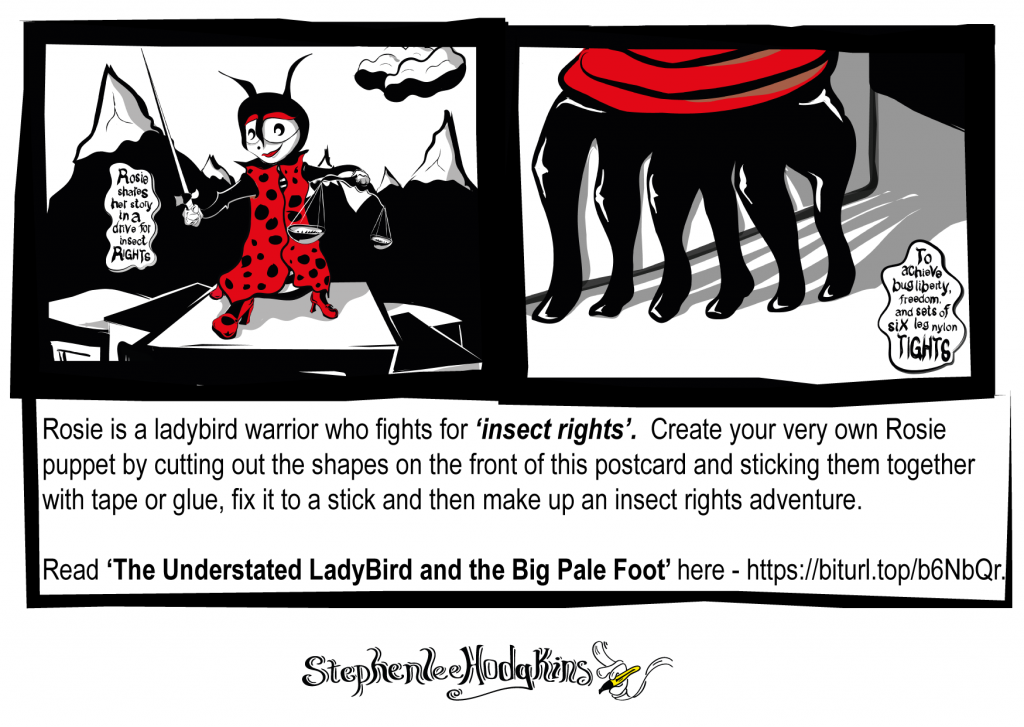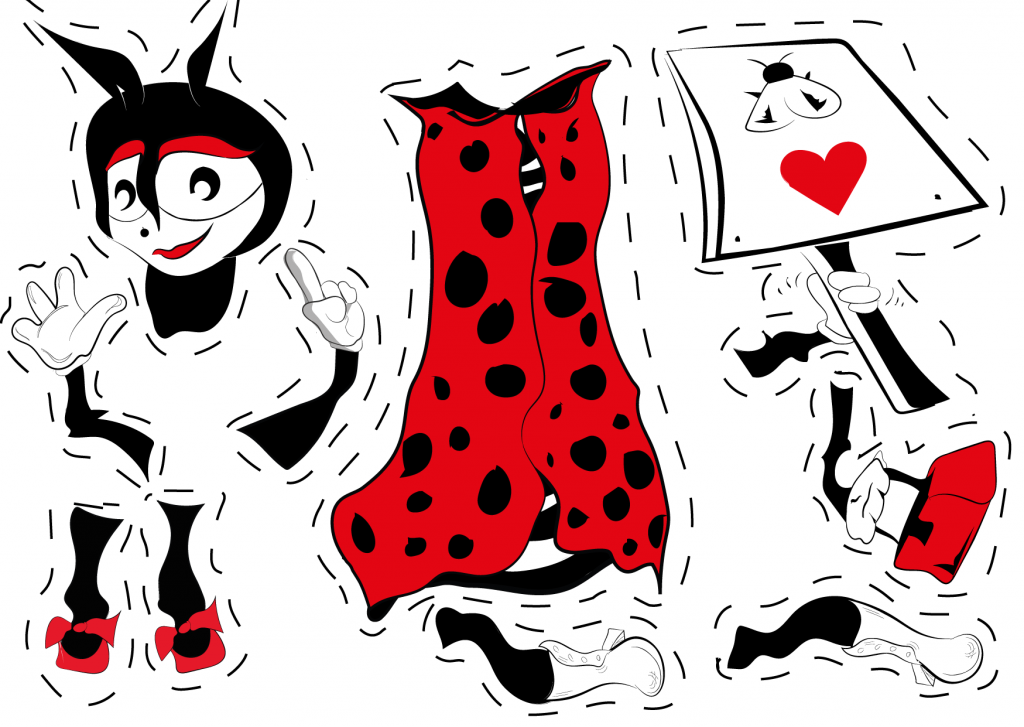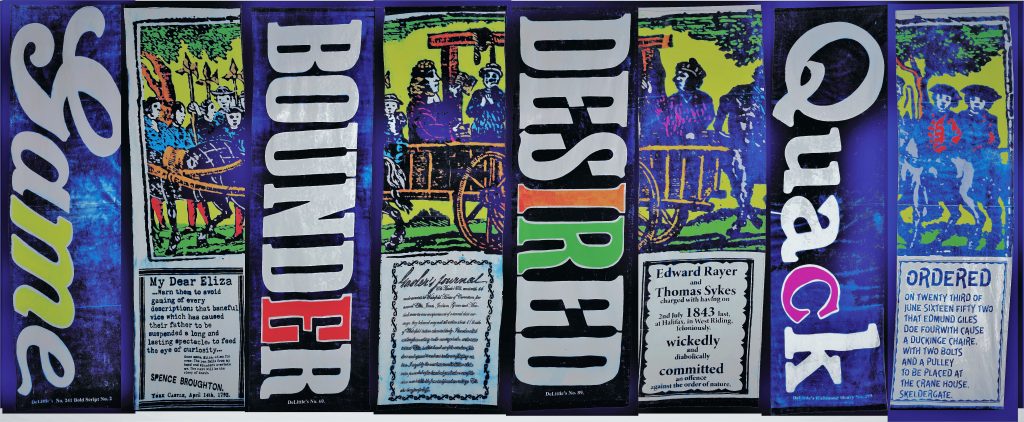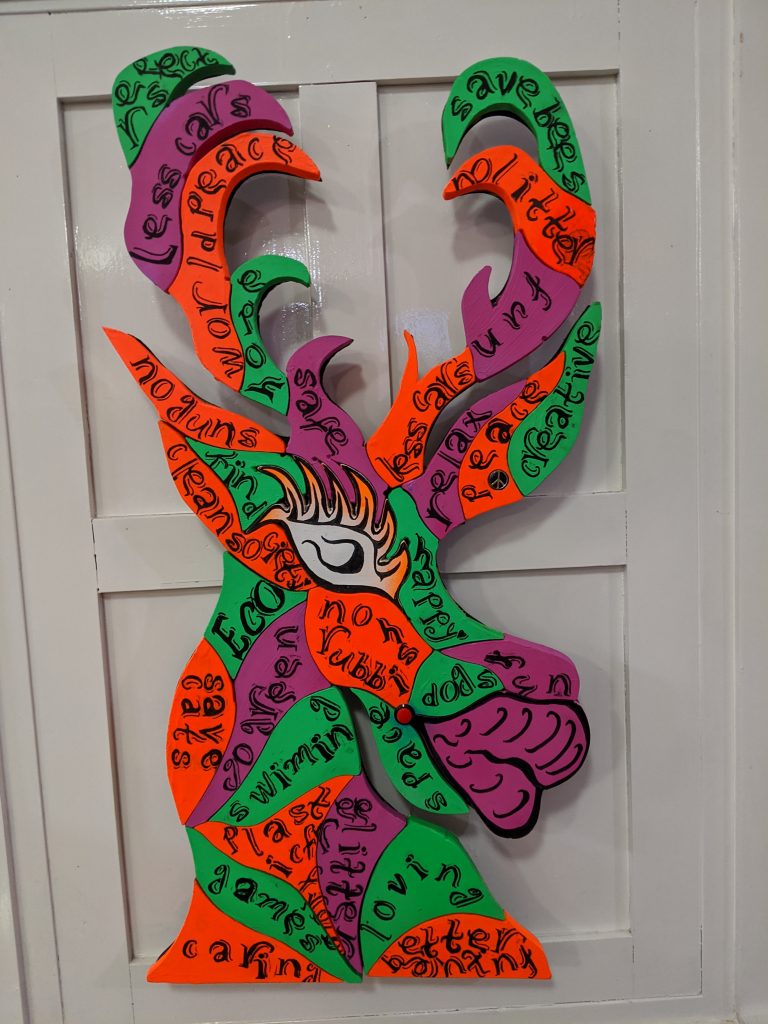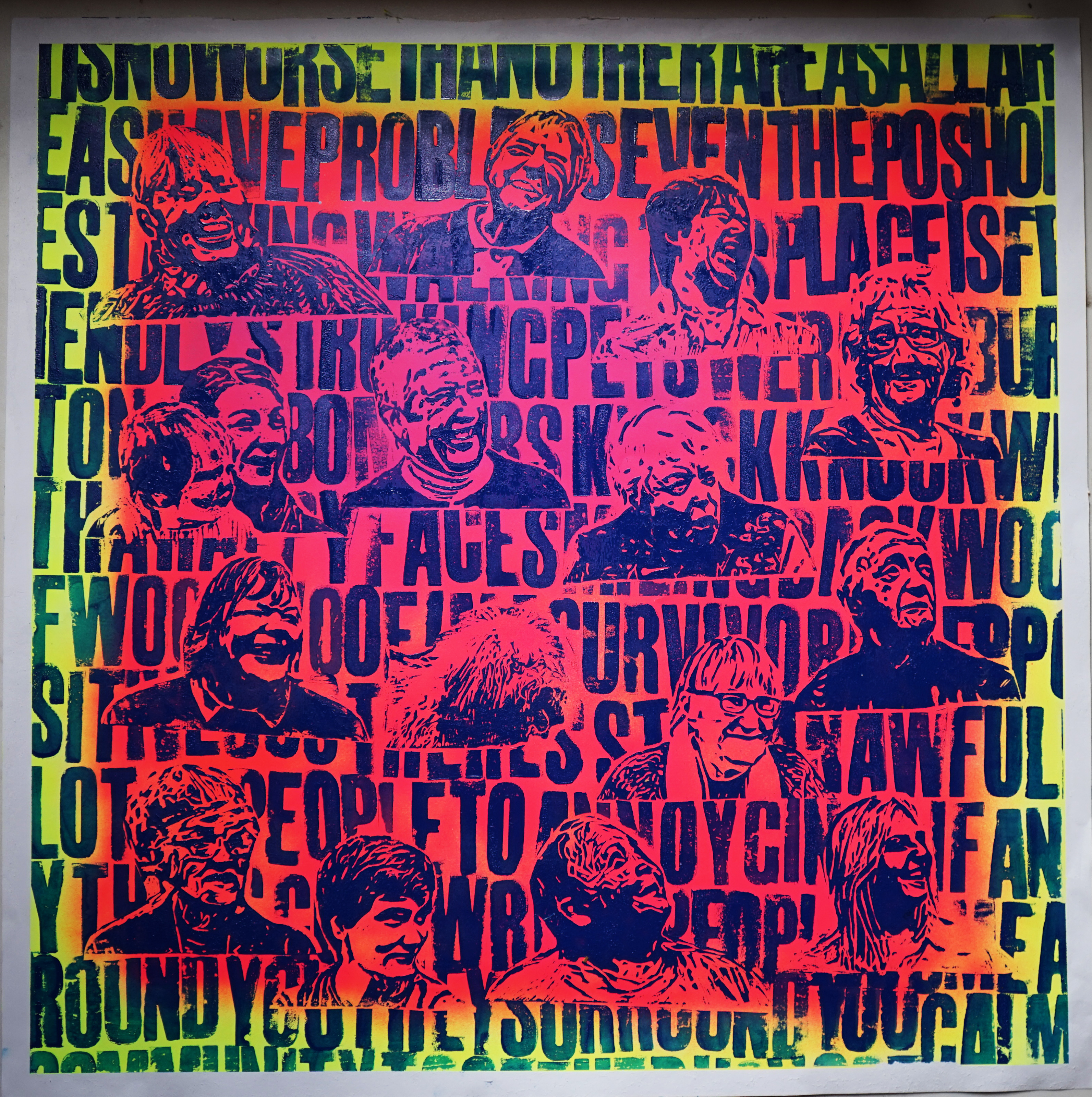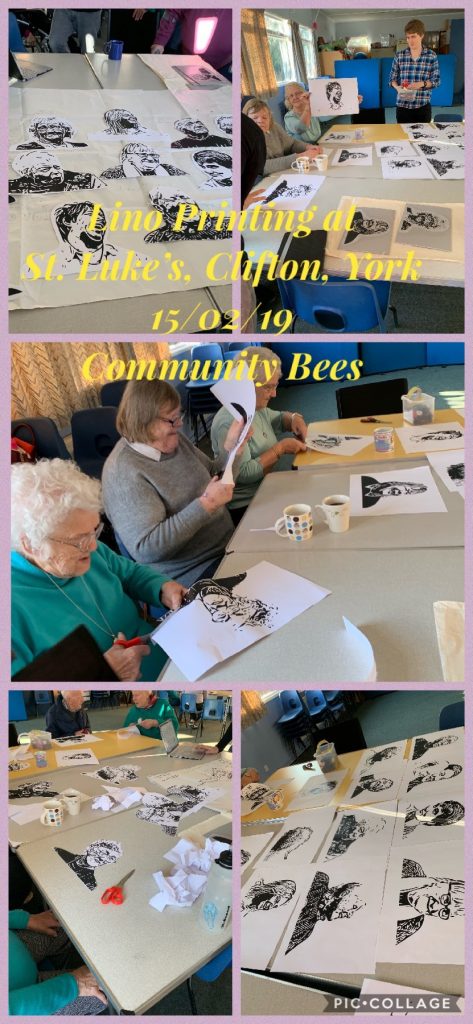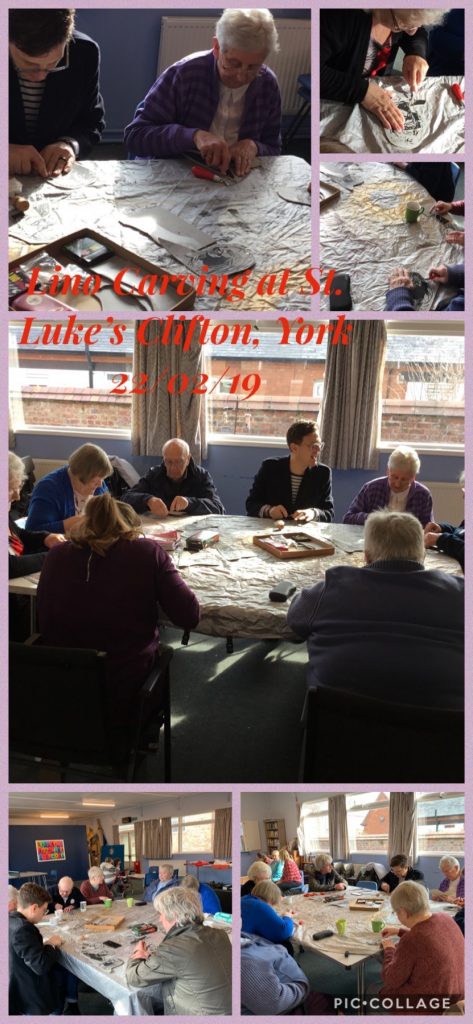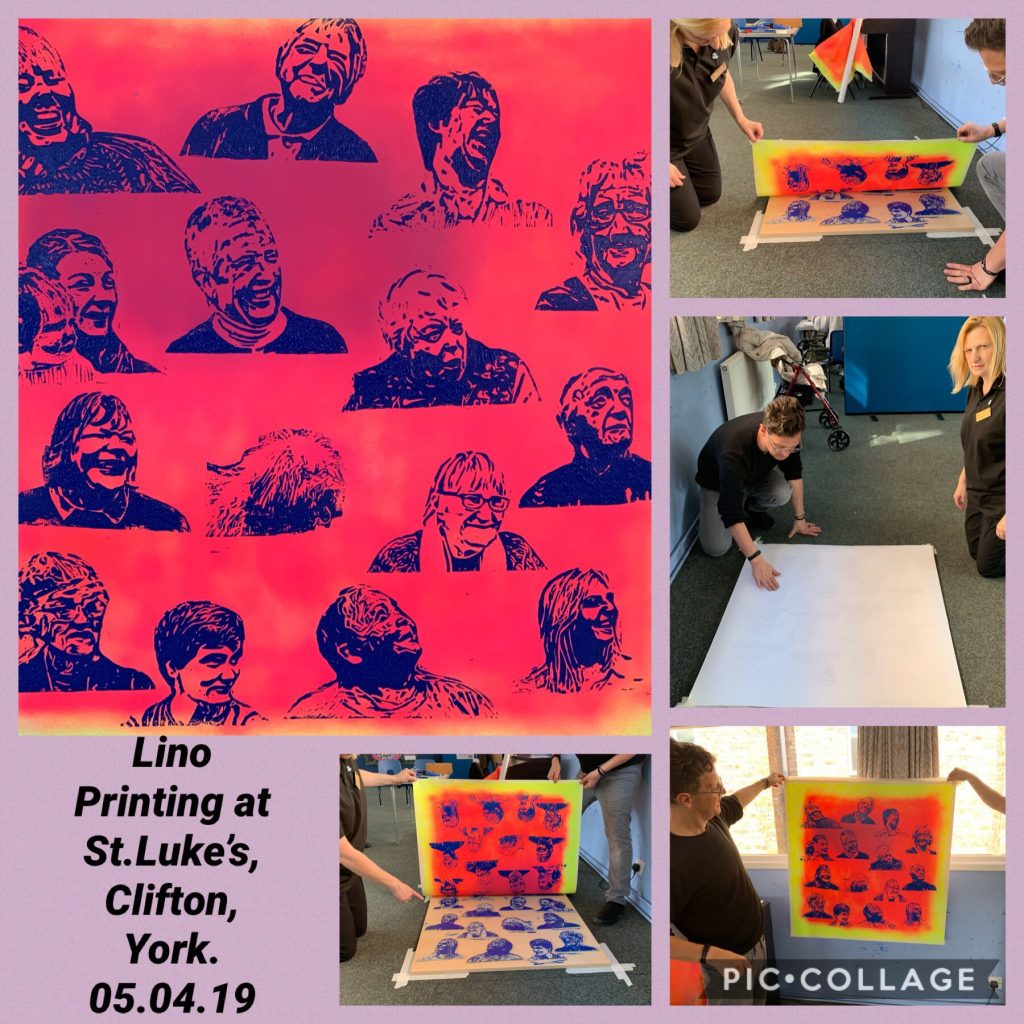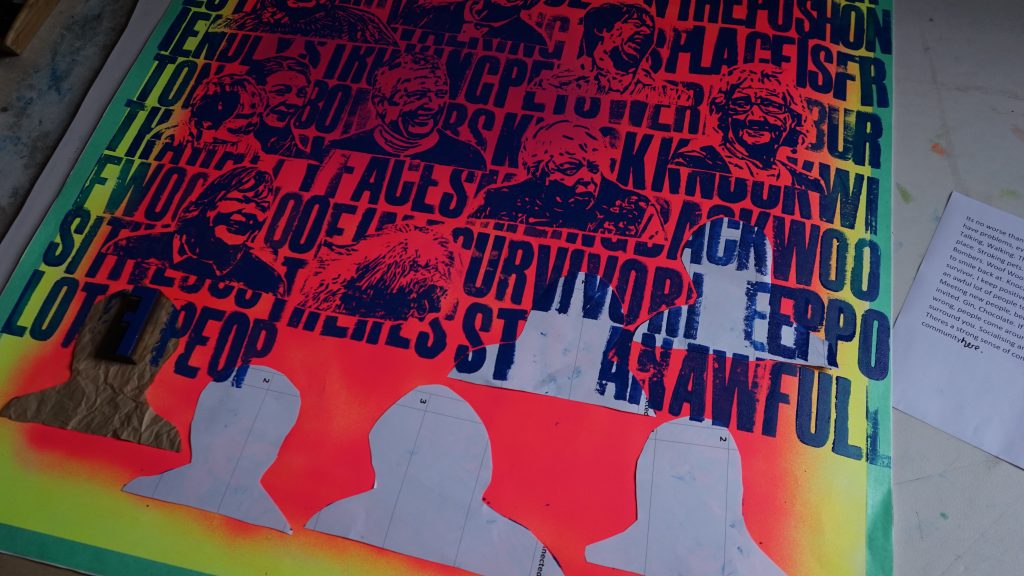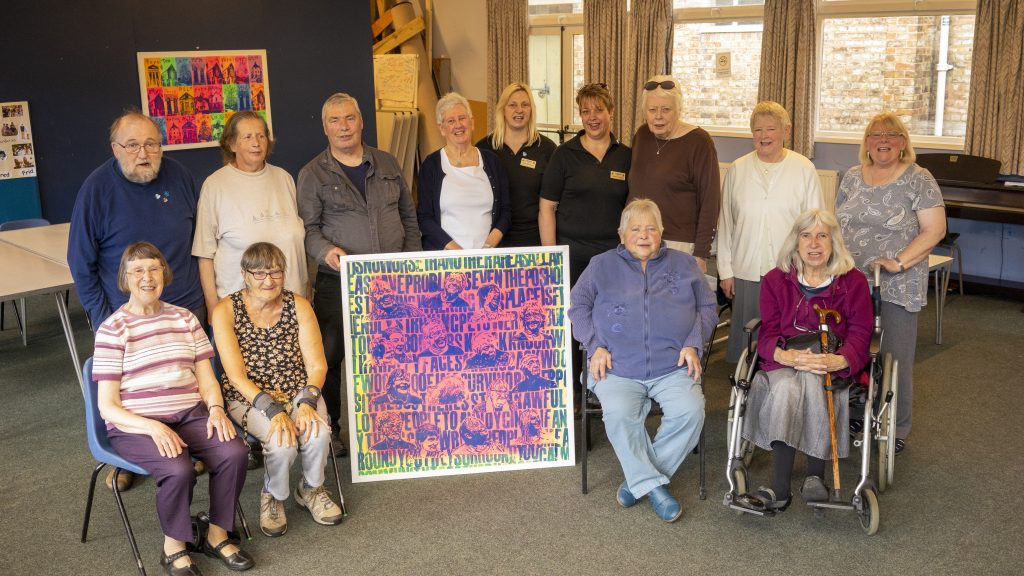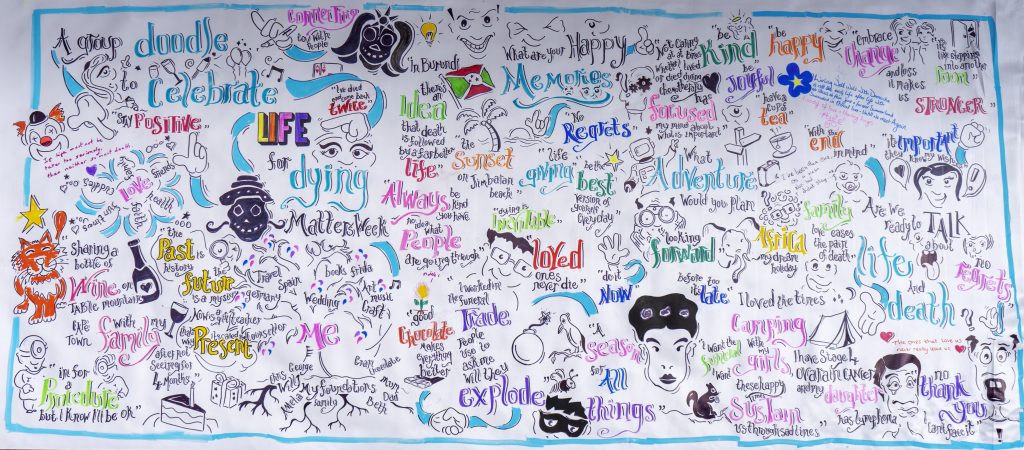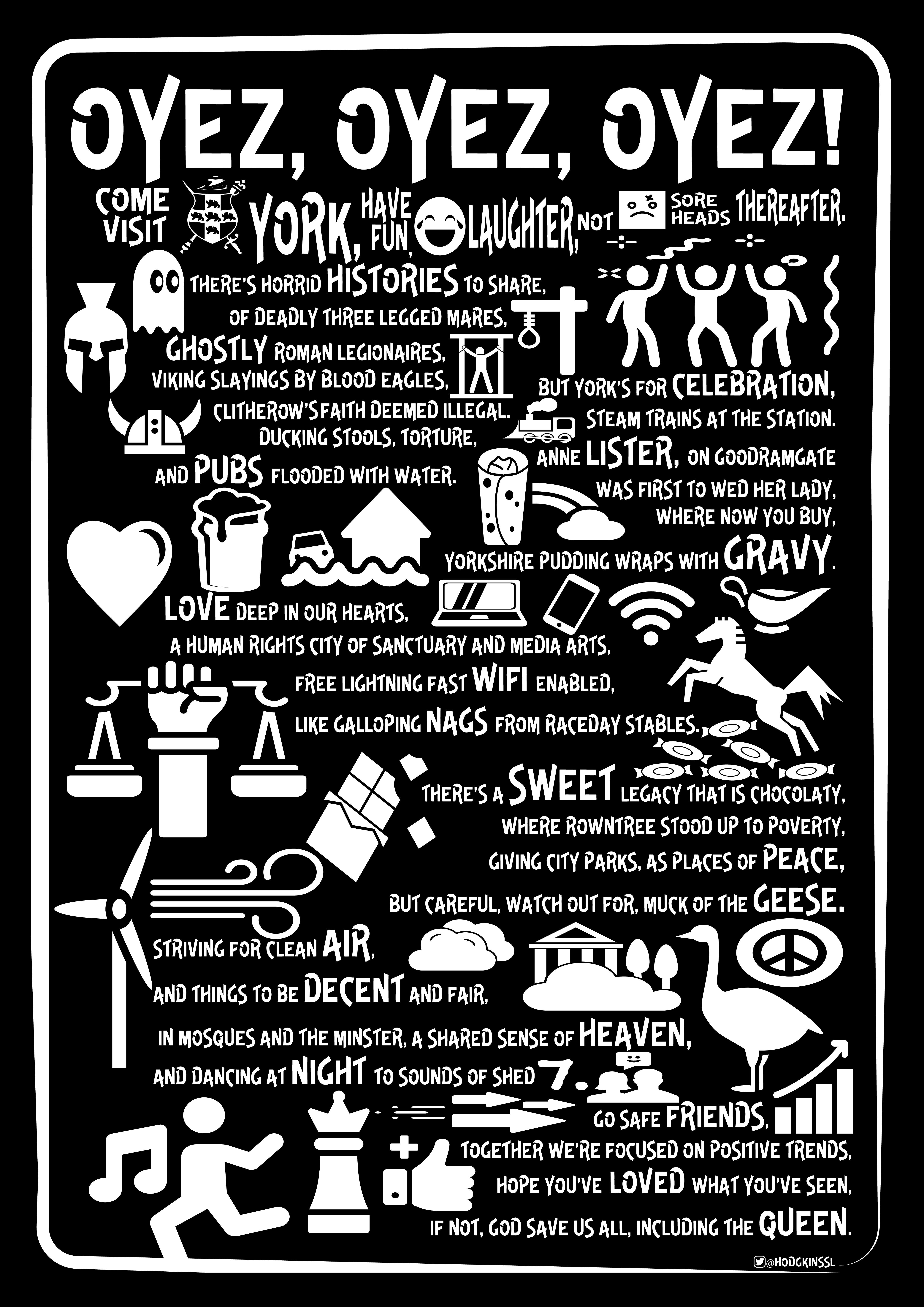
Typically when towns and cities create visual skyline banners they include the places most popular with tourists. While this can be good for getting people to visit it does not always include those places that hold important meaning to the often diverse and disparate local communities. Banners, web headers and posters of York are no different, presenting the usual suspects of the York Minister, Cliffords Tower, the city walls and its various gates and bars. However, for the York’s local communities there are other places of much more personal and collective meaning. These are many and include a range of hidden place based gems, as is featured in this piece.
People of York were asked; What is community? What does it mean to you? What does York’s Community Skyline look like? What community places and spaces are important to you? From this several places were suggested and linocuts made of each;
These included;
St Luke’s Church on Burton Stone Lane, nominated for the community café and various groups they put on, with also a reference to York FC floodlights as many people also highlighted the importance of sports and fitness clubs as important ‘communities’.
Priory Street Centre, as a hub of voluntary sector activity, and including the hosting of many diverse organisations.
The Reading Café at Rowntree Park, to represent the many Explore libraries as well as Parks of York.
The Central Methodist Church on St Saviourgate, not with specific reference to the church, but rather organisations such as Kyra Womens Project and Carecent, a breakfast centre for all homeless, unemployed or otherwise socially excluded members of our community
Folk Hall and New Earswick for its strong community, including Nelli (New Earswick Less Loneliness Initiative), CAN (Community Action for Nature) and NEST (New Earswick Sharing Together).
York Mosque at Bull Lane to reflect the range of faiths celebrated in York
St Nicks Nature Reserve, appreciating the many great outdoor community spaces in York.
Using the linocuts two pop art style ‘group prints’ were facilitated. One at St Luke’s Church with people attending the Friday activities, and a second at Priory Street, at a People Helping People event.
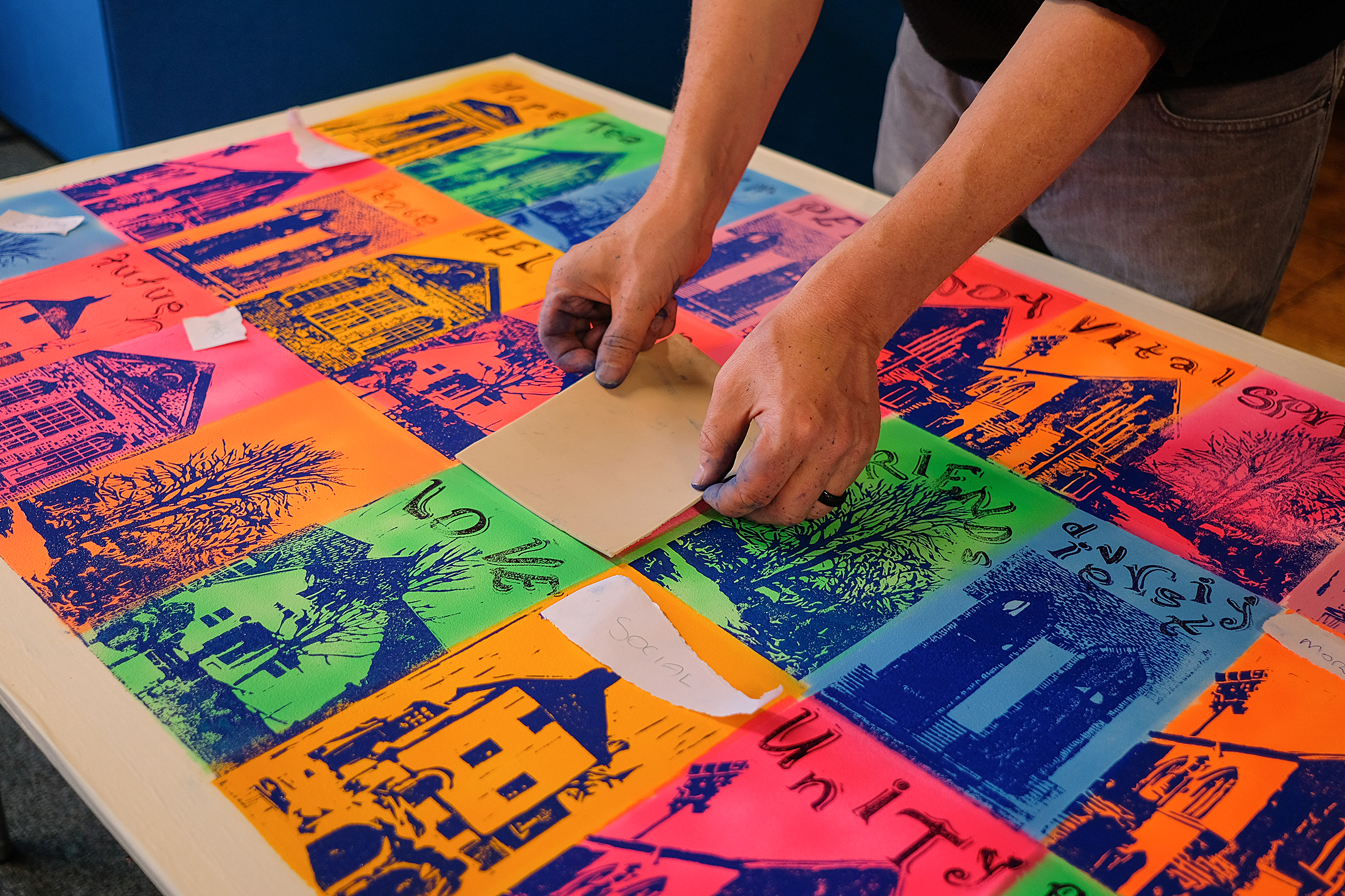 Group Print, St Luke’s Church 2018.
Group Print, St Luke’s Church 2018.
During the ‘group prints’ people were encouraged to add key words about what community meant to them using a letter print stamp set made from handwriting samples collected visitors of York Explore Library. This font highlights the unique shapes people express when making marks, and the wonderfully distinct style of when they come together.
Be Part Find Shelter Join In Love Play is a collective piece that reflects on the subjective meanings of ‘community’. This can relate to identity, but also to interest. It can be about where you are, but also where you want to go. And we are not just part of one, but rather we connect and move between many communities through our shared ideas, experiences and preferences.
– by Stephen Lee Hodgkins, for Live Well York, July 2018.
